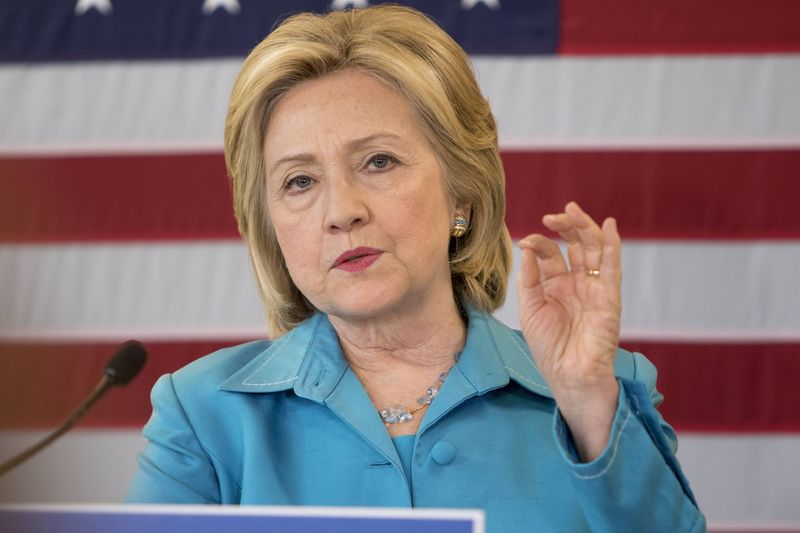By Alana Wise
DES MOINES, Iowa (Reuters) - U.S. presidential candidate Hillary Clinton on Monday described climate change as "one of most urgent threats of our time" and vowed to meet the challenge with a plan to generate enough clean energy to power every U.S. home by 2027.
The Democratic front-runner compared fighting climate change to the race to put an American on the moon by the end of the 1960s.
"The next decade will be as decisive for climate change as the decade for getting to the moon was for space exploration," Clinton said at a campaign stop in Iowa, which will hold the first presidential nominating contest in February.
"Sea levels are rising, ice caps are melting, storms, wildfires and extreme weather are wreaking havoc. This is one of most urgent threats of our time and we have no choice but to rise and meet it," said Clinton, the front-runner for the Democratic nomination in the November 2016 election.
Clinton promised to have more than half a billion solar
panels installed nationwide within four years if she makes it to the White House.
The former secretary of state has been under pressure from Democratic presidential rival Senator Bernie Sanders, a self-described socialist who has called for swift action on climate change, and environmental activists anxious to see her spell out details of a climate plan.
She vowed to "stop the giveaways to big oil companies" and to defend President Barack Obama's plan to reduce emissions from power plants, which is hitting the coal industry.
More details of Clinton's climate change agenda will be released over the next few months.
The Republican National Committee said Clinton's energy policies were vague and aimed at distracting attention from the controversy of her use of a private email account while she ran the State Department.

"Hillary Clinton's energy 'plan' is to raise more taxes and double down on President Obama's EPA overreach, which held down wages and cost American jobs. Clinton avoided specifics and refused to take a position on important job-creating energy projects like the Keystone pipeline, reminding voters why they think she's untrustworthy," said RNC spokesman Michael Short.